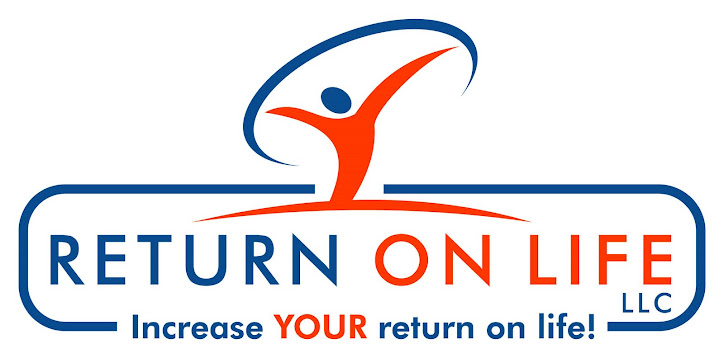As I watched the story unfold this past week about Tennessee Titans' quarterback Vince Young, I was reminded of one of life's basic rules: don't jump to conclusions. When the first reports came out that police had been called to help locate Young and that Young had been found with friends, just chilling out, there was immediate backlash at the overreaction by Coach Fisher and the authorities. It wasn't until several days later as more detailed information was revealed that it became clear that there was cause for concern.
We see this over and over as the haste to be first with the news results in publishing only half the story. But my point is not to berate reporters and news outlets (not this time around!). Stop and think about how often you react to someone else's actions by saying or thinking, "What a stupid thing to do", or some version of that thought. Is it possible you don't fully understand that person's situation or thought process? One manner of treating others with respect is to begin with the assumption that they came to their current conclusion through some logical thought process. You might not understand that process, therefore their reasoning or decision might not make sense to you, but I'll be you can gain more understanding if you ask.
Reduce your stress level by avoiding the temptation to jump to conclusions. Ask a few more questions, and all may become clear. And, if you think someone is making a bad decision, understanding their thought process in making it will facilitate helping them consider an alternative!
Monday, September 15, 2008
Return on Life: Avoid Jumping to Conclusions
Posted by
Becky Hooman
at
5:48 AM
0
comments
![]()
![]()
Labels: increase your return on life, reducing stress, respect
Friday, September 12, 2008
Return on Life: Be "in the moment"
Life coach Diana Fletcher (www.dianafletcher.com) teaches us that less multitasking is actually better for us. I had a reminder this week of just how true that is. This past Wednesday morning I was in a hotel room in Flushing, NY, getting dressed and ready for a presentation at 8:00 a.m. At 7:20, I finished the oatmeal and coffee I'd had delivered to save time, and stepped outside the room to set the tray in the hallway outside. You can probably guess what the next sound was that I heard. Exactly. The click of the door to my room as it shut behind me! Did I mention I was traveling alone? There I stood, thankfully clothed except that I was in my stocking feet. No ID, no room key.
I realized at that moment that I had let my mind become too busy thinking about the presentation. You see, I'm normally the one that checks three times to be certain that my keys are in my pocket, every time I leave the house. And probably check four times when I'm away from home! But because I was not thinking about what I was doing, I didn't even think about the fact that the door would close if I took one more step to the left...
Fortunately, they sent security up (quickly, I might add) and allowed me to show my ID AFTER he let me in the room, so I didn't have to traipse down to the marbled hotel lobby in my bare feet. However, by not paying attention to what I was doing--not staying in the moment-- cost me between 10-15 minutes that would had been valuable at that point in time and helped me feel more calm as I headed down for my presentation.
As you go through your day, stop and think: Are you living in the moment, or are you caught up in a past or future moment. Focus on where you are now, one thing at a time. It will lower your stress level and increase your return on life!
Posted by
Becky Hooman
at
9:31 AM
1 comments
![]()
![]()
Labels: increase your return on life, multitasking, reducing stress
Tuesday, September 2, 2008
Return on Life: Link Goals to Core Values
In order to set meaningful goals that you truly care about achieving, you need to ensure that there is a link between your goals/actions and your core values. A college professor in a workshop I conducted recently for a small college in West Virginia provides a perfect example of this. We'd gone through an exercise where each individual identified the 5 values that resonated most with them, then identified a goal for the coming year. The next step was to consider whether the goal had a link back to one or more of the values.
One professor offered that at first glance, his goal didn't match up, but in his mind, he could see the link. Here's what he said: "I have a goal of improving my health. My top value is achievement in my field. At first glance, those don't seem exactly related, but I know that my health is becoming an issue."
He had it exactly right! He realizes that he has to take some steps to improve his health, and that it is important to him because if he doesn't, he will not be able to live his highest value of achievement. Each time he takes a step to improve his health (eat a proper meal, exercise, etc.), he should remind himself that he is doing it so that he will be healthy enough to continue to advance and achieve in his field. That's the core value that will drive him. For someone else, health in and of itself might be the highest value, but for him, it's the achievement. By making the link in his own mind, he'll be more motivated to stick to his "get healthy" goal.
What goals do you have? Can you link them back to a core value for yourself? Let me know what you think!
Posted by
Becky Hooman
at
9:54 AM
0
comments
![]()
![]()
Labels: health, increase your return on life, values

